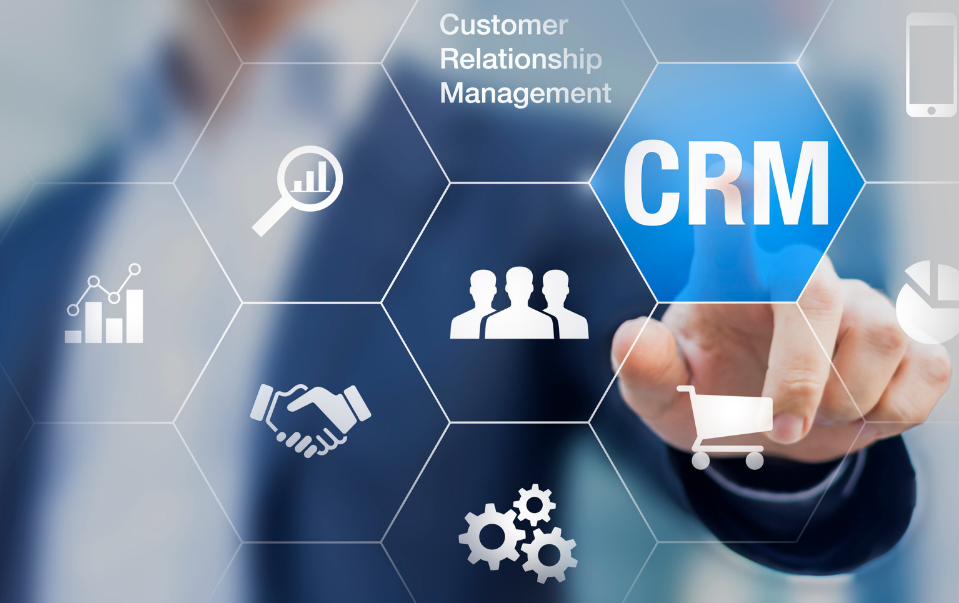CRM Unwrapped: Exploring the Benefits for Businesses
In today’s fast-paced business landscape, customer relationship management (CRM) has emerged as a critical tool for businesses of all sizes. This article delves into the world of CRM, uncovering its benefits and how it can transform the way businesses operate and interact with their customers.
1. Introduction
In the digital age, where customers hold the reins, businesses must strive to not only attract but also retain customers. This is where Customer Relationship Management (CRM) comes into play.
2. Understanding CRM
What is CRM?
CRM, or Customer Relationship Management, refers to the strategies, technologies, and practices that businesses use to manage and analyze customer interactions and data throughout the customer lifecycle. It’s more than just a software – it’s a holistic approach to building strong customer relationships.
Evolution of CRM
From its humble beginnings as a contact management tool, CRM has evolved into a comprehensive system that encompasses sales, marketing, and customer service, providing a 360-degree view of customer interactions.
3. Key Benefits of CRM
Enhanced Customer Insights
CRM systems gather a wealth of customer data, allowing businesses to gain deep insights into their preferences, behaviors, and pain points. This knowledge empowers companies to tailor their strategies accordingly.
Improved Customer Engagement
By understanding customer needs and preferences, businesses can engage with them on a more personalized level. This leads to better communication, higher customer satisfaction, and increased loyalty.
Streamlined Sales Processes
CRM tools help sales teams by automating various tasks, from lead generation to closing deals. This streamlining enhances efficiency and allows salespeople to focus on building relationships.
4. Personalization and Targeting
Tailored Marketing Campaigns
CRM enables businesses to create laser-focused marketing campaigns. By analyzing customer data, companies can send targeted messages that resonate with specific audience segments.
Customized Customer Experiences
Customers appreciate personalized experiences. CRM systems allow businesses to deliver just that by providing a history of interactions, enabling representatives to offer tailored solutions.
5. Efficient Data Management
Centralized Customer Information
CRM centralizes customer data, making it easily accessible to authorized personnel. This eliminates data silos, leading to consistent and accurate information.
Data Analytics and Decision-Making
CRM systems offer robust analytics tools, enabling businesses to make data-driven decisions. These insights help in identifying trends, forecasting, and refining strategies.
6. Boosting Customer Loyalty
Building Strong Relationships
CRM fosters stronger customer relationships by enabling businesses to stay connected and anticipate customer needs. This proactive approach enhances trust and loyalty.
Effective Communication
Prompt responses and personalized communication are facilitated by CRM. Whether through email or social media, businesses can maintain consistent and effective interactions.
7. Collaboration and Communication
Interdepartmental Coordination
CRM encourages collaboration between departments. Sales, marketing, and customer service teams can work together seamlessly, ensuring a cohesive customer experience.
Seamless Customer Support
CRM streamlines customer support processes, from issue identification to resolution. This leads to quicker response times and improved issue management.
8. Mobility and Accessibility
Cloud-Based CRM Solutions
Modern CRM solutions offer cloud-based accessibility. This allows teams to access data and insights from anywhere, fostering productivity even in remote work setups.
Remote Work Capabilities
Especially relevant in today’s world, CRM supports remote work by enabling teams to collaborate effectively, share updates, and maintain a unified view of customer interactions.
9. Selecting the Right CRM
Assessing Business Needs
Choosing the right CRM involves assessing business requirements. Different industries and sizes have varying needs, so the chosen CRM should align with specific objectives.
Scalability and Integration
A scalable CRM that integrates with existing systems ensures future growth and prevents disruption during expansion.
10. Implementation Challenges
Change Management
Implementing CRM might require changes in processes and mindsets. Effective change management ensures smooth adoption and minimal resistance.
Employee Training
Proper training is crucial for CRM success. Employees should be comfortable using the system to maximize its potential.
11. Measuring CRM Success
Key Performance Indicators (KPIs)
KPIs such as customer retention rate, lead conversion rate, and customer satisfaction scores measure CRM effectiveness.
Continuous Improvement
CRM is an evolving strategy. Regularly analyzing its impact and making necessary adjustments ensures continuous improvement in customer relationships.
12. Future Trends in CRM
AI and Automation
AI-powered CRM systems can analyze large datasets to predict customer behavior, enhancing personalization and decision-making.
Enhanced Data Security
As customer data privacy gains importance, future CRM systems will focus on robust security measures to safeguard sensitive information.
13. Conclusion
In the dynamic world of business, CRM plays a pivotal role in building lasting customer relationships. It empowers businesses to understand, engage, and cater to their customers in ways that were once thought impossible. By harnessing the benefits of CRM, businesses can navigate the competitive landscape with confidence and innovation.
14. FAQs
-
- What is CRM? CRM stands for Customer Relationship Management. It’s a strategy and technology that businesses use to manage and analyze customer interactions throughout their journey.
- How does CRM enhance customer engagement? CRM allows businesses to understand customer preferences, enabling personalized interactions and effective communication that lead to higher engagement and loyalty.
- Can CRM be beneficial for small businesses? Absolutely. CRM is adaptable and can be scaled to meet the needs of small businesses. It helps them streamline operations and build stronger customer relationships.
- Are there any risks associated with CRM implementation? While CRM offers numerous benefits, its successful implementation requires careful planning to address potential challenges like resistance to change and data security concerns.
- What role does data analytics play in CRM? Data analytics in CRM empowers businesses with insights into customer behaviors and trends, aiding informed decision-making and targeted strategies.
